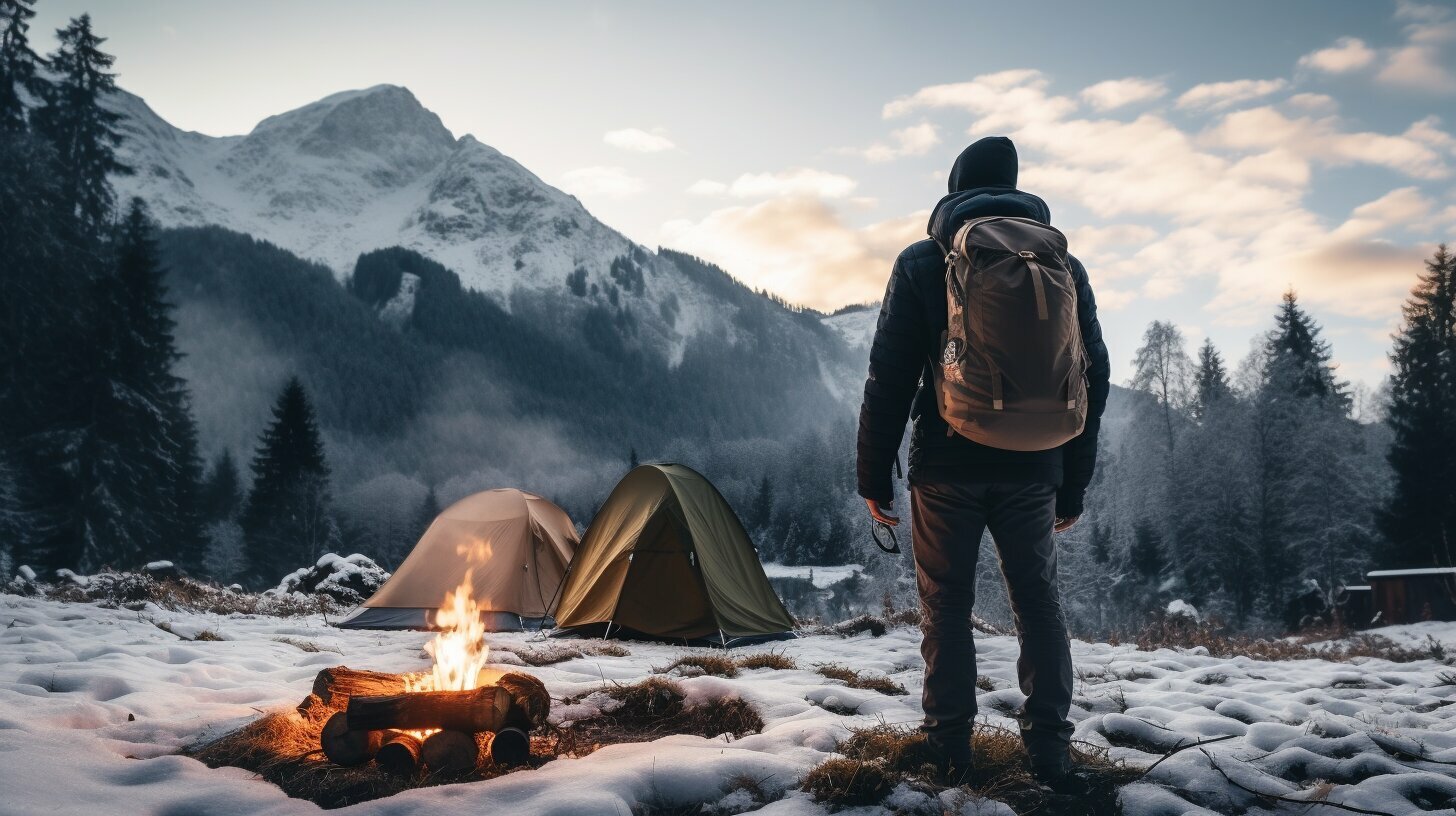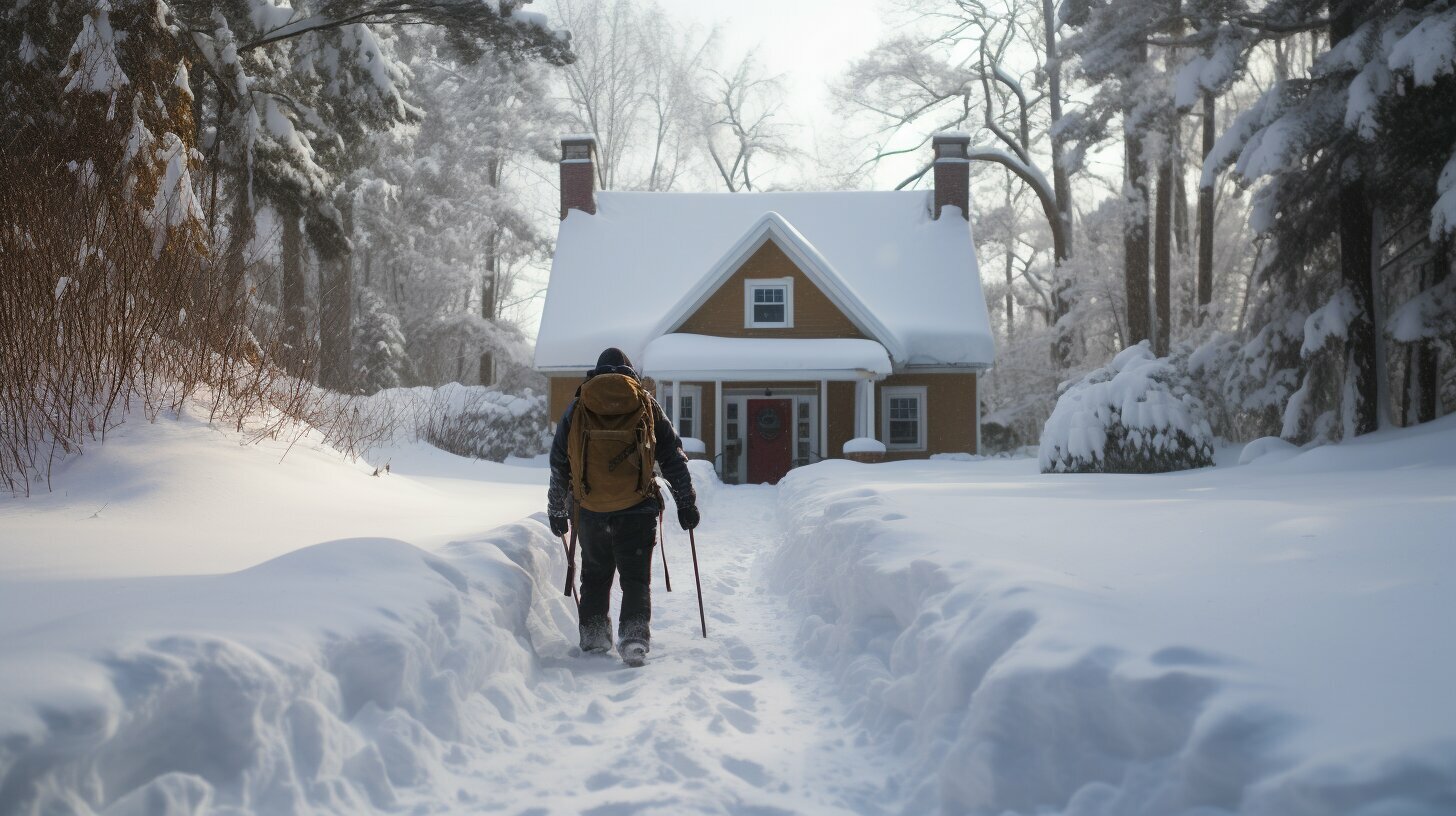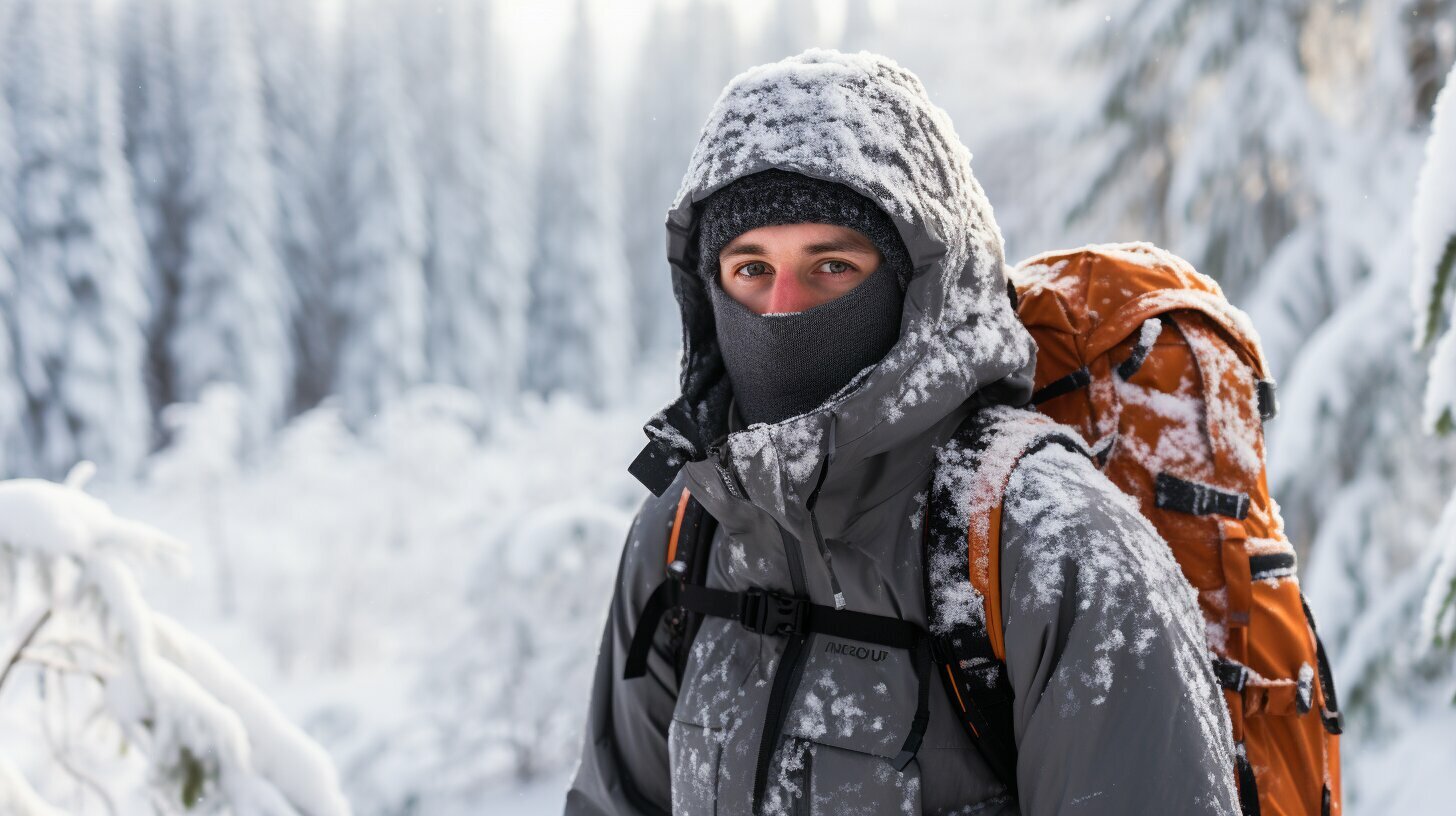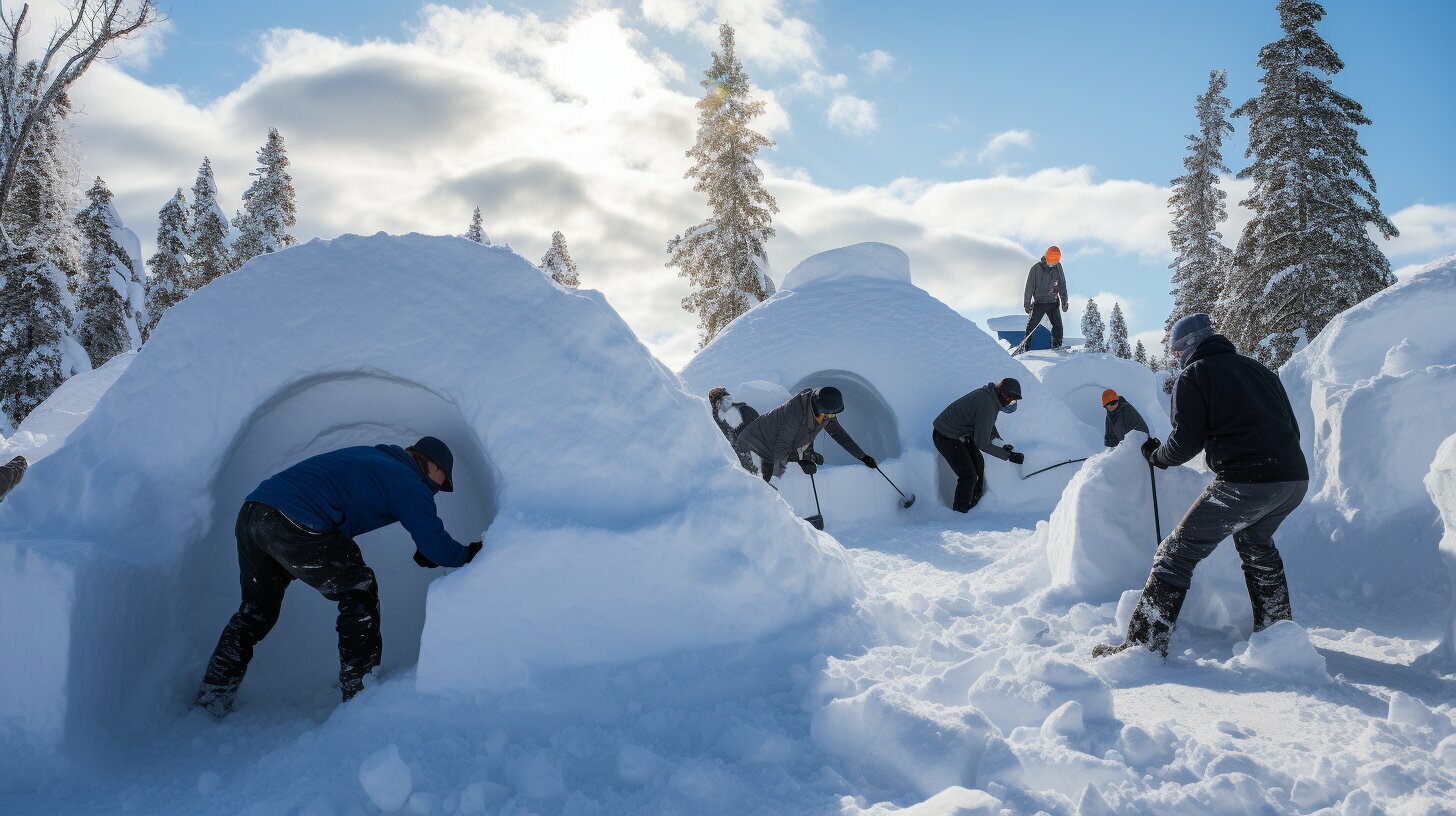Winter can be a beautiful season, but it can also be dangerous if you’re not prepared. Cold weather can pose many challenges, from staying warm to navigating snowy roads. That’s why it’s important to arm yourself with the right skills and knowledge to survive the winter months.
In this article, we’ll share our top winter survival tips for cold climates, including how to stay warm, prepare for emergencies, and keep yourself and your loved ones safe in the cold.
Key Takeaways
- Winter weather can be dangerous if you’re not prepared.
- By following our winter survival tips, you can stay warm, prepare for emergencies, and stay safe in cold climates.
Dressing for Winter Weather: Layer Up!
When it comes to dressing for the winter weather, it’s all about layering up. This not only keeps you warm but also allows you to easily regulate your body temperature as you move between indoors and outdoors.
The first layer should be a moisture-wicking fabric that keeps sweat away from your skin, such as thermal underwear or a long-sleeved shirt made of synthetic material. This layer should fit snugly but not be too tight, as it needs to allow for easy movement.
Disclosure: When you buy through links on our site, we may earn an affiliate commission.
The second layer should be insulating, trapping heat close to your body. This can be a sweater or a fleece jacket. Make sure this layer is loose enough to allow for airflow but not so loose that it doesn’t insulate properly.
The third layer should be protective against the elements, such as a waterproof and windproof coat. This layer should be slightly larger than your previous layers to allow for easy movement and the thickness of the layers underneath.
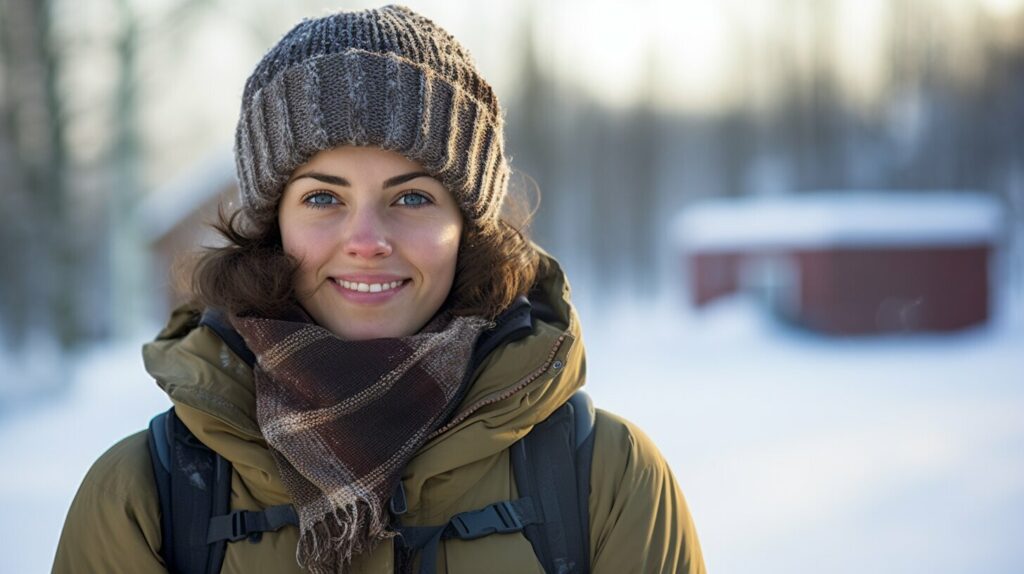
Accessories are also key in keeping warm. Be sure to wear a warm hat that covers your ears, gloves or mittens, and a scarf to protect your neck and face. These parts of your body are prone to losing heat quickly, but with the right accessories, you can keep warm and comfortable.
Remember, it’s important to remove layers if you start to feel too warm, as sweating can actually cause you to become colder later on. With these tips, you’ll be ready to take on even the coldest of winter days.
Staying Warm: Tips for Home, Office, and Outdoors
When the temperatures drop, it is important to take measures to stay warm, whether you are at home, in the office, or outdoors. Here are some helpful tips for staying warm:
At Home
Make sure your home is properly insulated and seal any drafts to keep the cold air out. Use a space heater or a fireplace to supplement your home’s heating system if needed. Wear warm clothing, use blankets, and drink warm beverages to keep your body temperature up.
| Tip | Description |
|---|---|
| Use Draft Stoppers | Place draft stoppers at the bottom of doors and windowsills to prevent cold air from coming inside. |
| Reverse Ceiling Fans | Reverse your ceiling fan’s direction to push warm air down into the room. |
| Cover Windows at Night | Use thick curtains or blankets to cover your windows at night to insulate the room. |
At the Office
Dress in layers at the office to adjust your clothing to the temperature. Keep a warm blanket and a space heater at your desk if possible. Drink warm beverages and take breaks to move around and get your blood flowing.
- Wear insulated boots and warm socks to keep your feet warm
- Use a heated mouse pad or hand warmer to keep your fingers warm while you work
Outdoors
When you go out, wear warm clothing, including a hat, gloves, and a scarf. Dress in layers, and avoid cotton, which can become damp and reduce your body temperature. If you plan on being outside for an extended period, take frequent breaks indoors to warm up and drink warm beverages to keep your body temperature up.
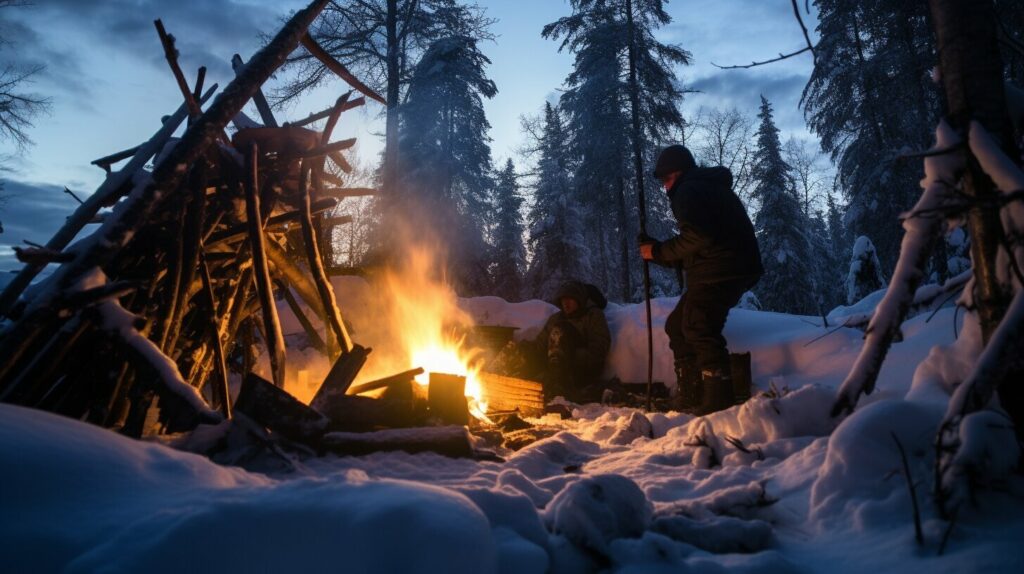
By following these tips, you can stay warm and comfortable during the winter months, no matter where you are!
Winter Emergency Preparedness: Essentials to Have
Winter storms can be treacherous, and it’s crucial to be prepared for emergencies. Here are some essential items to have in your emergency kit:
| Item | Description |
|---|---|
| Blankets | Thick, warm blankets to keep you and your family warm in case of power outages or being stranded in your car. |
| Non-perishable food | Canned goods and other non-perishable items that will provide you with sustenance if you cannot leave your home or are stranded in your car. |
| Flashlights | Multiple flashlights with extra batteries in case of power outages. |
| Portable phone charger | In case of power outages, it will keep your phone charged so you can call for help if needed. |
| First aid kit | Essential items like bandages, gauze, alcohol wipes, and anything else you may need in case of an emergency. |
| Extra warm clothing | Warm boots, gloves, hats, and scarves in case you have to venture outside in extreme temperatures. |
| Ice scraper and snow shovel | To clear snow and ice from your car and driveway. |
It’s important to periodically check your emergency kit to ensure everything is in working order and up-to-date. You never know when an emergency may occur, so it’s better to be prepared.
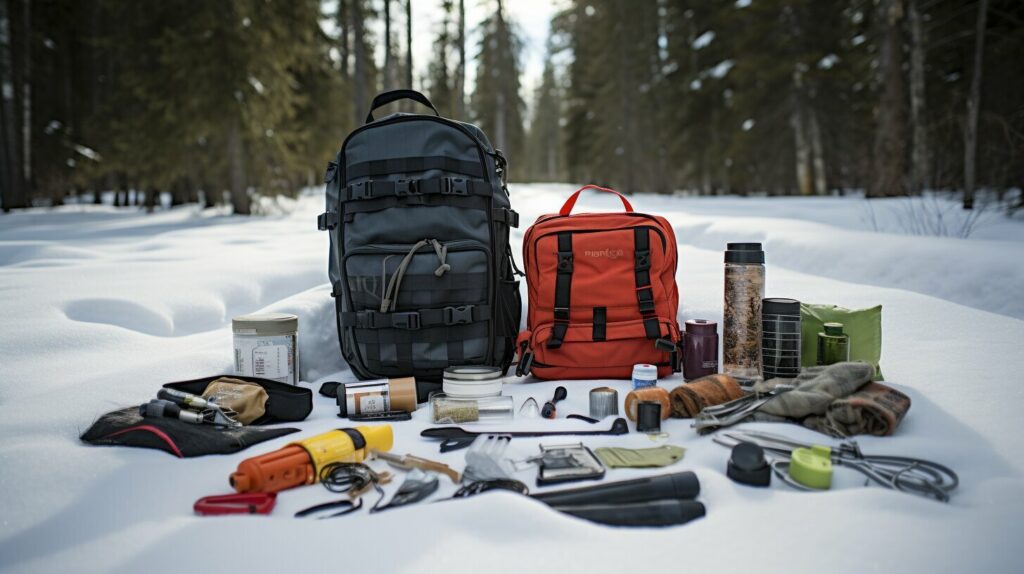
Remember, in winter emergencies, quick access to basic necessities can be the difference between life and death.
Winter Driving Safety: Navigating the Roads
Winter weather can make driving more challenging, so it’s important to take extra precautions when you hit the road. Here are some tips to help keep you safe:
- Make sure your car is properly maintained and has winter tires for better traction on snowy and icy roads.
- Clear all snow and ice from your vehicle before driving to ensure clear visibility.
- Reduce your speed and increase your following distance to allow for greater stopping time.
- Use your headlights and signal well in advance when turning or changing lanes.
- Avoid sudden movements or braking, which can cause your vehicle to skid.
Remember, it’s always better to be safe than sorry. If the weather is particularly severe, consider delaying your trip until conditions improve.
Stay alert and aware of other drivers who may not be taking the same precautions as you. By practicing safe driving habits, you can help ensure a safer winter for everyone on the road.
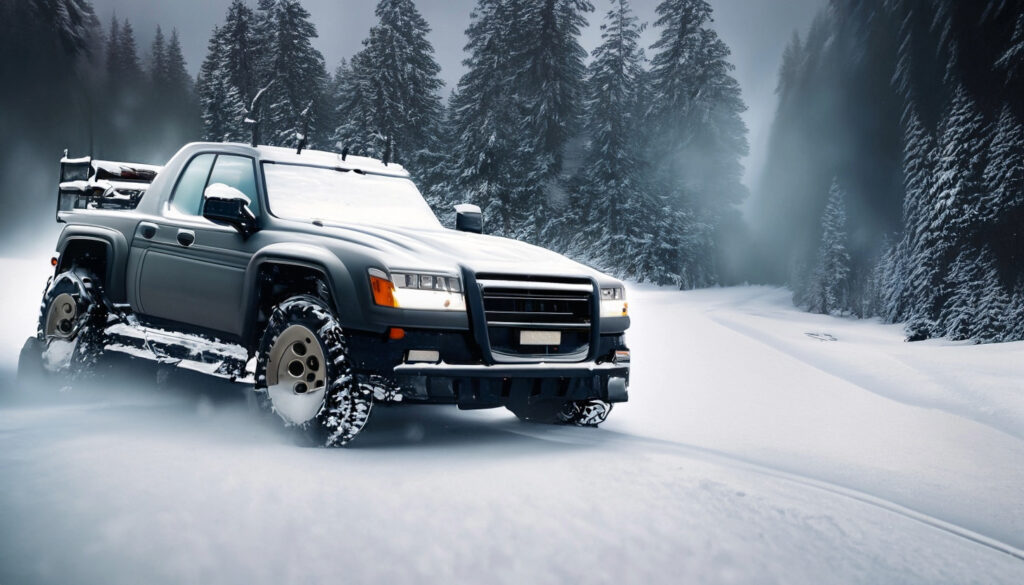
Winter Fitness: Staying Active in Cold Climates
Just because it’s cold outside doesn’t mean you have to let your fitness routine fall by the wayside. In fact, staying active during the winter months is especially important for maintaining physical and mental health. Here are some tips to help you stay on track with your fitness goals.
Embrace winter sports. Skiing, snowboarding, ice skating, and snowshoeing are all great ways to stay active and enjoy the winter wonderland. Plus, they offer a fun and festive way to get out of the house and socialize with others.
| Activity | Calories Burned per Hour* |
|---|---|
| Downhill Skiing | 280-410 |
| Cross Country Skiing | 400-560 |
| Shoveling Snow | 280-410 |
| Chopping Firewood | 220-330 |
| Snowmobiling | 110-160 |
*Based on a 154 lb (70 kg) person
Take your workouts indoors. If you’re not a fan of outdoor winter sports, head to the gym or take a fitness class. Many gyms and studios offer special winter programs and classes to keep you motivated and engaged.
Make use of indoor equipment. If you prefer to workout at home, invest in some basic fitness equipment, such as dumbbells, resistance bands, or a fitness ball. You can also try using indoor exercise machines, such as a treadmill, elliptical, or stationary bike.
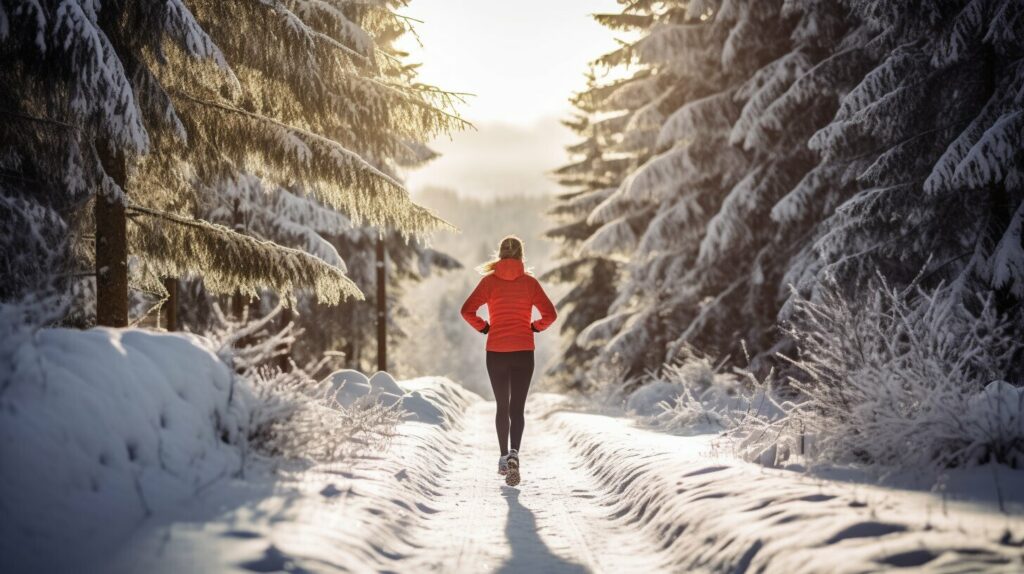
Bundle up and go for a walk. Walking is a simple and effective way to stay active and enjoy the winter scenery. Just make sure to dress appropriately for the weather, layering up with thermal underwear, a warm coat, hat, gloves, and waterproof boots.
Find an indoor pool. Swimming is a great low-impact workout that’s easy on the joints and provides a full-body workout. Look for an indoor pool near you and consider signing up for aquatic fitness classes or lap swimming sessions.
No matter how you choose to stay active, remember to give your body the rest and recovery it needs. Overexertion and injury can be more common in cold weather, so listen to your body and take breaks when needed.
Winter Nutrition: Eating Well for Cold Climates
When it’s chilly outside, it’s tempting to indulge in comforting, high-calorie foods. However, it’s essential to maintain a healthy diet to keep your body fueled and ready to fight off winter illnesses. Here are some winter nutrition tips to help you stay healthy and satisfied during the cold months.
Emphasize Nutrient-Dense Foods
Make sure your meals include plenty of fruits and vegetables to provide you with essential vitamins and nutrients. In-season produce like sweet potatoes, squash, kale, and citrus fruits are great options. Additionally, focus on lean proteins, whole grains, and healthy fats.
Stay Hydrated
Drinking plenty of water is essential all year round, but it’s especially important during the winter. Cold and dry air can dehydrate you quickly, so aim to drink at least eight cups of water a day. Hot beverages like tea and broth can also help you stay hydrated.
Don’t Skip Meals
Skipping meals can lead to overeating later on, so make sure to eat regular, balanced meals throughout the day. Additionally, try to eat breakfast within an hour of waking up to kick-start your metabolism and give your body energy for the day.
Indulge in Moderation
It’s okay to treat yourself to your favorite comfort foods now and then, but do so in moderation. Enjoy a small portion of your favorite dessert or comfort food, but focus on nutrient-dense foods for the majority of your meals.

By following these winter nutrition tips, you can help keep your body healthy and happy all season long. Remember to prioritize nutrient-dense foods, stay hydrated, eat regular meals, and indulge in moderation. Stay warm and nourished!
Winter Skincare: Protecting Your Skin from the Cold
During the winter months, the cold weather can wreak havoc on your skin. It’s important to take extra care to protect your skin from the harsh elements to keep it healthy and glowing.
One essential skincare tip for winter is to moisturize, moisturize, moisturize! Cold air dehydrates the skin, so using a heavy-duty moisturizer is key. Look for products with ingredients like shea butter, hyaluronic acid, and glycerin to provide deep hydration.
Another important factor to consider is sunscreen. Even on cloudy days, the sun’s harmful UV rays can still reach your skin. Apply a broad-spectrum sunscreen with an SPF of at least 30 before going outside to protect your skin from sun damage.

You should also avoid taking hot showers and baths, as they can strip your skin of its natural oils. Opt for lukewarm water instead, and limit your time in the shower or bath to no more than 10 minutes.
In addition, don’t forget to protect your lips from chapping by using a lip balm with SPF 30 or higher. And if you’re going to be outside for an extended period of time, be sure to cover up with a hat, scarf, and gloves to protect your skin from the cold wind.
By following these winter skincare tips, you can keep your skin healthy, hydrated, and protected all season long.
Winter Survival Skills: Coping with Winter Blues
Winter can be a tough time for many people. As the days get shorter and the nights get colder, it’s easy to feel down and isolated. But don’t worry – there are things you can do to take care of your mental health during the winter months.
One of the best things you can do is to stay active. Exercise releases feel-good chemicals in your brain that can help boost your mood and energy levels. If outdoor activities are too cold, try indoor workouts like yoga or pilates. You can also try taking up a new hobby or volunteering to help others – these can give you a sense of purpose and fulfillment.
Another important aspect of winter mental health is social connection. Even if you can’t meet up in person, make time to connect with friends and family through phone calls, video chats, or even sending letters or care packages. If you’re feeling really down, consider reaching out to a mental health professional – they can offer support and guidance.
It’s also important to take care of your physical health during the winter. Eating a healthy and balanced diet can help keep your energy levels up and boost your immune system. Make sure you’re getting enough sleep, too – aim for at least seven hours a night.
Finally, don’t forget to take time for yourself. Self-care can mean different things to different people – it might be taking a bubble bath, reading a book, or practicing mindfulness meditation. Whatever it is that makes you feel relaxed and rejuvenated, make sure you’re making time for it.
Remember, it’s normal to feel a bit down during the winter – but that doesn’t mean you have to suffer. By taking care of your mental and physical health, staying connected with loved ones, and making time for yourself, you can get through the winter months feeling happy and healthy.

Winter Safety: Precautions for Children and Pets
Winter weather can be especially challenging for children and pets. To keep them safe and comfortable during the colder months, it’s important to take some extra precautions.
For children:
- Make sure your child is dressed appropriately for the weather, with a warm coat, hat, gloves, and boots.
- Teach your child about the dangers of playing on frozen ponds, lakes, or streams.
- Make sure your child knows how to recognize and avoid hypothermia and frostbite.
- Ensure that your child’s school or daycare has a winter weather plan in place, including how to handle snow days or delays.
For pets:
| Tip | Description |
|---|---|
| Limit time outdoors | Bring your pet inside when temperatures drop below freezing and limit outdoor time during extreme cold weather. |
| Dress for warmth | For short-haired or small dogs, consider a coat or sweater to keep them warm during outdoor walks. |
| Watch for antifreeze | Antifreeze is toxic to pets and has a sweet taste that can be tempting to them. Clean up any spills immediately and store it out of reach. |
| Check paws | Check your pet’s paws for ice and snow buildup and use pet-safe ice melt to prevent slips and burns. |
By taking these precautions, you can ensure that your children and pets stay safe and healthy during the winter months.
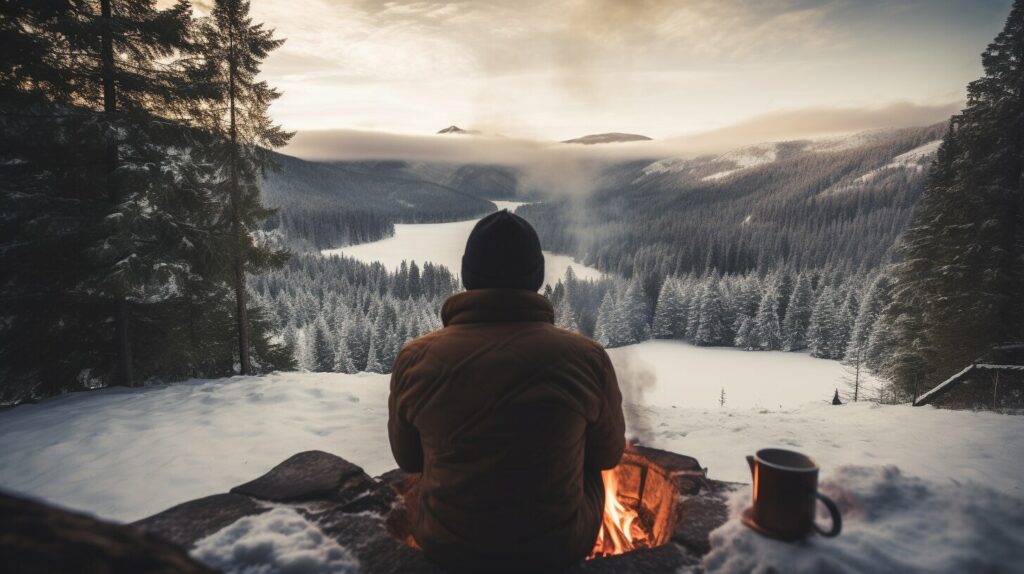
Conclusion
You are now equipped with the essential winter survival skills needed to thrive in cold climates. From dressing for winter weather to staying warm at home, work, or outdoors, to preparing for emergencies and staying safe on the roads, you have learned it all.
Don’t forget to stay active, eat well, protect your skin, and take care of your mental well-being during the winter months. And, make sure to take precautions for your children and pets to keep them safe too.
With these winter survival tips, you can enjoy the beauty of winter while staying warm, happy, and healthy. Stay safe and have a wonderful winter season!
FAQ
Q: What are some essential winter survival tips for cold climates?
A: Here are some essential winter survival tips for cold climates:
Q: How should I dress for winter weather?
A: When dressing for winter weather, it’s important to layer up to stay warm in extreme cold.
Q: What are some tips for staying warm at home, the office, and outdoors?
A: Here are some tips for staying warm in extreme cold at home, the office, and outdoors.
Q: What essentials should I have for winter emergency preparedness?
A: To be prepared for winter emergencies, here are some essentials you should have.
Q: What are some tips for safe winter driving?
A: Navigating the roads in winter can be challenging, here are some tips for safe winter driving.
Q: How can I stay active in cold climates?
A: Staying active in cold climates is important for winter survival skills, here are some tips.
Q: How can I eat well for cold climates?
A: Eating well in cold climates is crucial for winter survival skills, here are some tips.
Q: How can I protect my skin from the cold?
A: Protecting your skin from the cold is important, here are some tips for winter skincare.
Q: How can I cope with winter blues?
A: Winter blues can affect mental well-being, here are some tips for coping with winter blues.
Q: What precautions should I take for children and pets in winter?
A: Ensuring the safety of children and pets in winter is important, here are some precautions to take.

